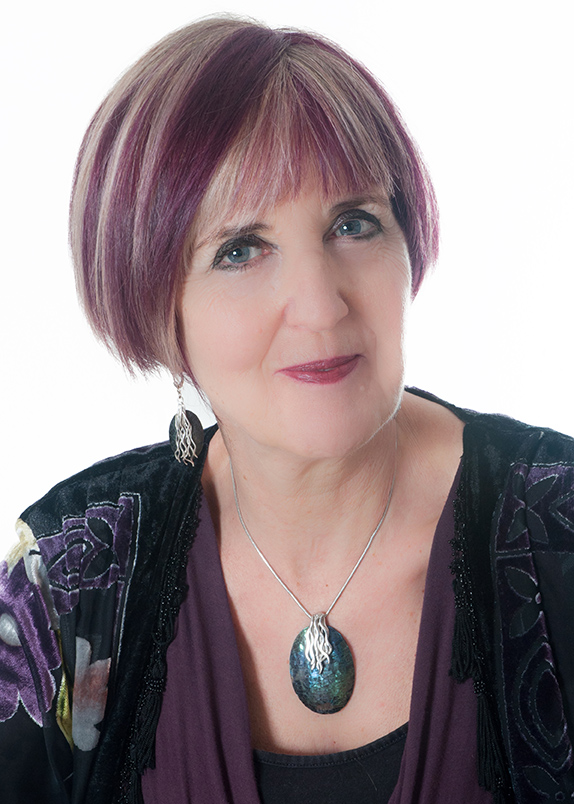Corinne Sweet is a Psychotherapist in N1 and EC4
What attracted you to become a therapist?
I've been in the counselling business for all my working life: as a volunteer for Rape Crisis and women's centres, as a counsellor and teacher, and now as a psychotherapist. I believe everyone needs a damn good listening to: somewhere to sift problems, think things through, grieve, rage, worry and complain.
My attraction to being a therapist comes mainly from the benefits I have experienced getting over a difficult childhood and traumas in my adult life. I have experienced the benefits first hand.
Where did you train?
Most recently I trained at Spectrum Therapy in London Certificate in psychotherapy . I also trained at the Centre for Stress Management CBT Before that I was at Birkbeck College, on an MSc course The Psychology of Human Development, Jungian stream , where I gained a Dip.Psych. I have also trained as a couples psychotherapist at Spectrum, and am in ongoing supervision there.
Can you tell us about the type of therapy you practice?
I am a humanistic psychotherapist, so the main focus is on the client learning about and loving themselves. However, I draw on many trainings. So I will work with someone and adapt to their needs, using Gestalt, or CBT or Formative Psychology. I start in the present with someone and see what they need, but we will go back into past experiences, as and when they emerge. I am interested in family history and we often find patterns going back that can help clarify the present. I am concerned with giving a client tools to be more powerful in everyday life.
What sort of people do you usually see?
I see a lot of women in their late twenties and thirties; men and women in crisis about family issues; people dealing with their sexuality, past traumas. I also see older people, facing later life issues around family and health.
I have several clients dealing with alcoholic parents and people dealing with anxiety and stress, and their own addictions. As I write self-help books see www.corinnesweet.com I also get readers who want therapy.
What is less pleasant?
Very little. I love the work, and really enjoy seeing someone grow and develop. Sometimes clients just 'disappear' without ending properly, and the work feels incomplete. It's very satisfying to end properly and send someone into the world feeling better about themselves.
How long have you been with welldoing.org and what do you think of us?
I've been with welldoing.org for about a year. I think it is an excellent resource, packed with great articles. I think the website is clean, clear, friendly, well-organised.
I had the pleasure of working with Louise Chunn in my journalistic days and have great respect for her, so I knew anything she did would be brilliant. I feel proud to be associated with welldoing.org as it is informative, professional and smart. I've also had some lovely clients through welldoing.org.
Do you ever suggest books or apps to clients?
Yes. My own books are available in my therapy rooms, and also online. I also make lists of useful reading and apps for different areas of work, like being an adult child of an alcoholic, anger work, giving up addictions, sexuality, deciding to be a parent, etc.
My CBT book is a work book, so people use that in their work sometimes, especially if dealing with obsessions and addictions. I have a book called How to Say No, which is a about co-dependency; and with couples I talk about Stop Fighting About Money.
What do you do for your own mental health?
I am in individual therapy and supervision. I also sing in a choir, take exercise walking, Pilates, dancing, swimming, gardening , and have recently learned to sail. Best is laughing helplessly with my nearest and dearest, having lots of cuddles with loved ones and my two cats, or using a baseball bat on a beanbag when world politics gets me down.
You are a therapist in Islington and the City in Central London. What can you share with us about seeing clients in those areas?
I see a wide range of people who are professional, and usually working in the daytime I work three evenings a week and two afternoons . They are people under pressure and who want results. They also need a safe, confidential place to download as we all do .
What are your consultation rooms like?
I am incredibly lucky to be working in beautifully appointed and excellently-run rooms. The Barnsbury Therapy Rooms have been established for over a decade by Kate McGeever, and I am in a new Courtyard Extension there. And the City Therapy Rooms are a newly adapted townhouse. The rooms are sound-proofed, comfortable, calm, with fresh flowers, objets d'arts and paintings. Clients feel at ease and comment on the lovely décor.
The rooms are well-run and any problems are ironed out amicably and professionally. The therapists meet occasionally so it's possible to network, whilst still being watertight about client confidentiality.
What do you wish people knew about therapy?
That it's a place to drink deep, to relax and understand yourself, rather than a torture-chamber where you are 'analysed' coldly by a scary person. I think therapy is nourishment, and a platform from which to sort out all those dark corners, make decisions, and to move on...it's not at all like a visit to the dentist for root canal treatment.
What did you learn about yourself in therapy?
Over the years I have come to understand why I have had the relationships and failed relationships that I have had. I've also learned to love myself, and look after myself, by knowing what I need. I've learned to communicate that to people close to me. Also, I've lived alcohol-free for 16 years, and that's transformed my life, outlook, finances and health.





